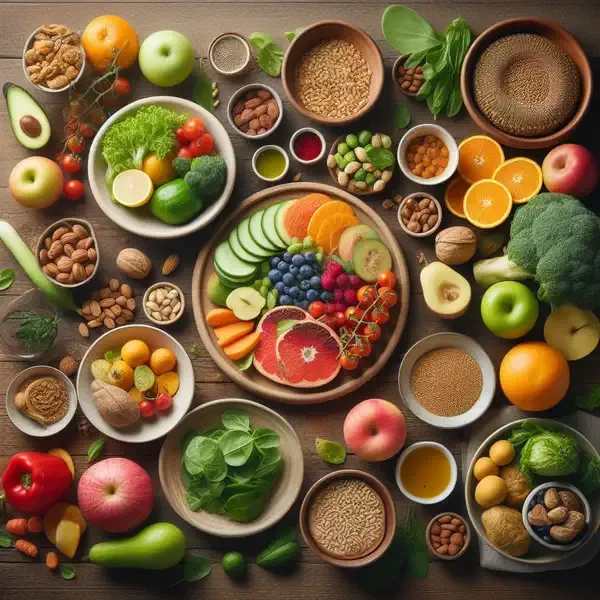Saving Organic Food: Navigating Challenges and Celebrating Successes
 |
| Saving Organic Food: Navigating Challenges and Celebrating Successes |
Saving Organic Food: Navigating Challenges and Celebrating Successes
Save Organic Food
In the modern world, the importance of preserving the organic food industry cannot be overstated. As consumers become more health-conscious and environmentally aware, the demand for organic produce has been steadily increasing. This has led to a movement to "save organic food" from the threats posed by industrial agriculture, genetically modified organisms, and harmful chemicals. In this essay, we will examine the historical context, major events, key figures, and the impact of the "save organic food" movement. We will also identify and analyze influential individuals who have contributed to the field of organic food preservation. Furthermore, we will discuss various perspectives and provide a well-reasoned analysis of both the positive and negative aspects of saving organic food. Lastly, we will consider potential future developments related to the organic food industry.
The industrialization of agriculture in the 20th century brought about a shift towards large-scale, monoculture farming practices that relied heavily on chemical fertilizers, pesticides, and genetically modified organisms. While these methods increased crop yields and reduced costs, they also had detrimental effects on human health and the environment. As a result, the organic food movement emerged as a response to these concerns, advocating for sustainable farming practices that promote soil health, biodiversity, and natural pest control.
One of the key events in the history of the organic food movement was the publication of Rachel Carson's groundbreaking book "Silent Spring" in 1962. Carson's book exposed the dangers of pesticides and inspired a generation of environmental activists to push for stricter regulations on chemical use in agriculture. This paved the way for the organic farming movement to gain momentum in the 1970s and 1980s, with the establishment of organizations such as the Organic Trade Association and the Rodale Institute.
Another major event in the history of organic food preservation was the passage of the Organic Foods Production Act in 1990, which established national standards for organic farming and labeling. This legislation laid the foundation for the growth of the organic food industry in the United States, leading to increased consumer awareness and demand for organic products.
Key figures in the organic food movement include individuals such as J.I. Rodale, who founded the Rodale Institute in 1947 to promote organic farming principles, and Alice Waters, a renowned chef and food activist who has been a vocal advocate for sustainable agriculture and local food systems. These influential individuals have played a significant role in shaping the organic food movement and raising awareness about the importance of saving organic food.
The impact of the "save organic food" movement has been profound, with consumers increasingly seeking out organic products for their health and environmental benefits. Organic farming practices have been shown to improve soil fertility, conserve water, and reduce pollution, making them a sustainable alternative to conventional agriculture. In addition, organic foods are often higher in nutrients and free from harmful chemicals, making them a healthier choice for consumers.
Despite these benefits, there are also challenges facing the organic food industry, including the high cost of organic certification, competition from industrial agriculture, and the risk of contamination from genetically modified organisms. These issues highlight the need for continued support and advocacy for organic farming practices to ensure the long-term viability of the organic food industry.
In conclusion, the "save organic food" movement has made significant strides in promoting sustainable farming practices and raising awareness about the benefits of organic food. Key figures such as J.I. Rodale and Alice Waters have been instrumental in advancing the organic food movement and advocating for the preservation of organic agriculture. While there are challenges facing the organic food industry, the momentum towards sustainable food systems continues to grow, with consumers increasingly recognizing the importance of saving organic food for future generations. As we look to the future, it is crucial that we continue to support organic farming practices and prioritize the health of our planet and ourselves. Save organic food, save our future.
FAQs about Saving Organic Food
What is the importance of saving organic food?
Saving organic food is crucial for promoting sustainable farming practices, preserving biodiversity, and protecting human health and the environment from harmful chemicals used in conventional agriculture.
What are the main threats to organic food?
Industrial agriculture, genetically modified organisms (GMOs), chemical pesticides, and fertilizers pose significant threats to organic food by degrading soil health, reducing biodiversity, and contaminating food with harmful residues.
Who are some key figures in the organic food movement?
Key figures include J.I. Rodale, founder of the Rodale Institute, and Alice Waters, a renowned chef and food activist. These individuals have played pivotal roles in advocating for sustainable agriculture and raising awareness about the benefits of organic food.
How has legislation influenced the organic food industry?
Legislation such as the Organic Foods Production Act of 1990 has established national standards for organic farming and labeling, providing a framework for the growth of the organic food industry and increasing consumer awareness and demand for organic products.
What are the benefits of organic farming practices?
Organic farming practices improve soil fertility, conserve water, and reduce pollution. Organic foods are also often higher in nutrients and free from harmful chemicals, making them a healthier choice for consumers.
What are the challenges facing the organic food industry?
Challenges include the high cost of organic certification, competition from industrial agriculture, and the risk of contamination from GMOs. Overcoming these challenges requires continued support and advocacy for organic farming practices.
How can consumers support the organic food movement?
Consumers can support the organic food movement by choosing organic products, supporting local farmers markets, advocating for sustainable agriculture policies, and raising awareness about the benefits of organic food to their communities.
What is the future outlook for organic food?
The momentum towards sustainable food systems continues to grow, with consumers increasingly recognizing the importance of saving organic food for future generations. Continued support for organic farming practices is essential for ensuring a healthier planet and food system.







